The Johns Hopkins University School of Medicine Division of Neurosciences Critical Care has a 30-year tradition of implementing leading edge education and research in its continuing service to acutely ill neurological and neurosurgical patients at the Johns Hopkins Medical Institutions. The particular strength of the program is its collaboration between faculty from departments of neurosurgery, neurology and anesthesiology and critical care medicine.
Contact Information
Neurosciences Critical Care Fellowship (NCCU)
Department of Anesthesiology and Critical Care Medicine
The Johns Hopkins Medical Institutions
600 N. Wolfe St., Phipps 455
Baltimore, MD 21287
(410) 955-7461
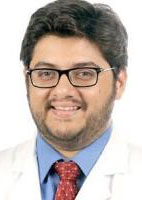
Program Director
Vishank A. Shah, MD
vshah21@jhmi.edu
Program Coordinator
Shirley Anderson
sandersd@jhmi.edu
ACGME Accredited
Positions Available: 5
Application enrollment date (s) or deadline: Jan 1st – Mar 15th
Applicant Qualifications: Eligible candidates include current residents and board-certified graduates from an ACGME-accredited residency training program in: Neurology, Neurosurgery, Emergency Medicine, Internal Medicine, Anesthesiology/Critical Care Medicine, or Surgery.
The Johns Hopkins University Division of Neurosciences Critical Care has, since its introduction, enthusiastically participated in the SF Matching Program (https://sfmatch.org/specialty/neurocritical-care-fellowship/Overview) and worked with the Neurocritical Care Society (https://www.neurocriticalcare.org/) to acquire candidates for fellowship positions in neurocritical care.
Eligible candidates include current residents and board-eligible recent graduates from an Accreditation Council for Graduate Medical Education (ACGME) -accredited residency training program in: Neurology, Neurosurgery, Emergency Medicine, Internal Medicine, Anesthesiology/Critical Care Medicine, or Surgery.
Suitable candidates should submit the following documentation:
- Application form
- Curriculum vitae
- A letter of good standing from your residency program director
- A letter of intent or personal statement, and
- Three letters of recommendation
The division director and fellowship director will evaluate these documents and invited selected candidates for an interview.
Please submit inquiries about the application process and requests for an application form to:
Vishank A. Shah, MD
Assistant Professor Neurology, Anesthesiology and Critical Care Medicine
Director, Fellowship Program Division of Neurocritical Care
The Johns Hopkins Hospital
600 N. Wolfe St., Phipps 455
Baltimore, MD 21287
vshah21@jhmi.edu
Our two-year fellowship program helps create clinical and research leaders in academic neurocritical care. Fellows spend their first year developing patient care skills and teaching ICU medical students, house staff, and nurses in the bedside care of patients. The second year adds responsibilities of team management and formal teaching of the concepts of neurophysiology, along with principles of treatment for various neuropathologic processes and general critical care issues. Throughout both years, 50 percent protected research time allows fellows bandwidth to develop and execute clinical and translational research projects according to their interests, with close mentoring by faculty in neurology, neurosurgery, and anesthesia and critical care medicine.
Upon successful completion, fellows are certified in advanced cardiac life support and advanced trauma life support. They are board-eligible for the United Council of Neurologic Subspecialties Neurocritical Care examination, and have accumulated a research and publication foundation for their academic career.
Rotations
Clinical rotations in the NCCU at JHH as well as NCCU at Bayview Medical Center are in 1-2 week blocks. Other clinical rotations include a 2-week block in the Surgical ICU, Medical or Cardiac ICU as “observers” (participation in rounds, and all academic activities, but not directly responsible for patient care) and a 2-week block in the operating rooms for exposure to intra-operative monitoring and elective intubations/airway management.
Facilities
The NCCU in Johns Hopkins Hospital comprises of a 22-bed unit and a 14 bed NCCU at Bayview Medical Center. Both units are state-of-art facilities for the care of critically ill patients and equipped with bedside monitors for invasive hemodynamic monitoring, ventilator capabilities and computerized data recording systems. The specially trained neurocritical care team of physicians and nurses, respiratory therapists, pharmacists and social workers provides the multidisciplinary cohesive approach to the care of patients. There is a highly developed neuroradiology department with sophisticated neuroimaging (CT, MRI) equipment and interventional neuroradiologists available at all times for emergency diagnostic and therapeutic procedures. The stroke team closely interacts with the NCCU team that has developed critical pathways for patients with ischemic and hemorrhagic strokes.
Clinical Component
The training period is 2 years, which entails 50% time-effort as clinical rotations in the NCCU (22 beds) at Johns Hopkins Hospital and NCCU at Bayview Medical Center (14beds). Fifty percent time-effort is dedicated toward academic activities with emphasis on clinical and/or laboratory-based research under direct supervision and mentorship of a designated faculty member in the Division. Clinical rotations in the NCCU at JHH as well as NCCU at Bayview Medical Center are in 1-2 week blocks. Other clinical rotations include 2-week blocks in the Surgical ICU, Medical or Cardiac ICU and time in the operating rooms performing intra-operative monitoring, elective intubations and airway management. Finally, fellows rotate to the R. Adams Cowley Shock Trauma Center for experience in managing patients with multiple traumatic injuries including traumatic brain injury.
Hours and Supervision
The program is designed to have close and direct supervision from attending staff during clinical rotations. During clinical rotations (1-2 week blocks) fellows spend 10-12 hours per day providing direct patient care. Typically, the NCCU team consists of an attending, 2 fellows, 3-4 resident house staff and a nurse practitioner’s team. With this team approach, sleep deprivation and excessive hours rarely is an issue, but if it arises on occasion, the team approach allows for appropriate backup from attendings and co-fellows. A mentorship program has been developed recently whereby each fellow is assigned to a faculty member in the division who functions as a mentor for all non-clinical research activities (laboratory-based and clinical) including writing and reviewing articles in peer-reviewed journals, formulating hypothesis-driven research protocols, grant writing etc.
Rounds
Rounds are structured toward active participation with distinct roles for each member of the team (attending, fellow, resident, nurses, pharmacist, social worker). Detailed critical care rounds occur with a “systems-approach” to each patient and special emphasis is applied to bedside teaching as it pertains directly to patient care. Multiple goal-directed rounds occur through the course of the day (Combined neurosurgical rounds, critical care rounds, radiology rounds, evening rounds) and the fellows lead these rounds. The first year as a Junior Fellow is spent developing patient care skills and teaching the ICU house-staff and nurses regarding the bedside care of patients.
Procedural requirements
Training for procedural competency begins immediately in July of the first year with a Simulation Center series focused on common critical care interventions. Fellows practice non-invasive ventilation, direct laryngoscopy and endotracheal intubation, insertion of central and peripheral venous and arterial catheters. They perform lumbar puncture and insertion of lumbar drains in the simulation environment several times before their clinical duties require performing these procedures for patients.
Simulation Center
The Simulation Center also allows for structured exposure to emergency neurological life support (ENLS) events. Finally, fellows certify for advanced cardiovascular life support (ACLS) in the simulation environment using complex, realistic scenarios that provide more problem solving opportunities than the “megacodes” used in conventional ACLS certification testing. All procedures are closely supervised and countersigned by attending staff during clinical rotations. Procedural competence is an integral part of training. Procedures include arterial line and central line placement, Swan-Ganz catheter placement and interpretation, thoracentesis, airway management including endotracheal intubation and bronchoscopy. Fellows are permitted to perform procedures independently only during emergencies and following approval from the NCCU Director and Co-Director.
Didactic teaching
Didactic teaching sessions occur daily for fellows and resident house staff. Topics include diseases that are seen commonly with special emphasis on fundamental principles, pathophysiology and critical aspects of patient management. In addition, over the first 1-2 month period at the start of fellowship training, there is an intensive didactic lecture series on topics that include cardiopulmonary aspects of critical care as it pertains to critically ill neurological and neurosurgical patients. An intensive one-week course in neurosonology (Transcranial Doppler) comprising of lectures and “hands-on” practice is mandatory for all fellows in the first six months of fellowship training. Intensive one-week courses for Advanced Cardiac Life Support (ACLS) and Advanced Trauma Life Support (ATLS) are also mandatory for all fellows toward obtaining certification.
Conferences
Conferences include a weekly divisional research conference (institutional CME-approved) where a broad spectrum of topics in basic science and clinical research are presented. Particular emphasis is paid to basic science research that has translational significance into clinical paradigms. Attendance at this conference is mandatory for all faculty and fellows in the Division. Updates on patient enrollment in ongoing clinical trials and alterations in existing protocols are also provided. Invited speakers comprise of faculty from the NCCU division, from other faculty at the JHU and other institutions as well as pharmaceutical-based experts in the research field. Fellows and faculty are encouraged to attend weekly departmental grand rounds in the Departments of Neurology, Neurological Surgery and Anesthesiology and Critical Care Medicine. A journal club encompassing recent published research articles are presented by fellows and critically discussed once a month at these conferences.
Personal Enrichment Programs
Fellows are encouraged to attend courses given by the School of Public Health and the School of Medicine and other CME courses at the national meetings of the Academy of Neurology, American Neurological Association and the Society of Neuroimaging. Courses on medical ethics, biostatistics, and epidemiology are particularly encouraged.
Teaching Opportunities for Fellows
Participation in bedside teaching as well as with didactic lectures is an integral part of fellowship training. Fellows are given specific topics and expected to give 1-2 lectures per week formally to resident house staff during their NCCU rotations. Other informal bedside teaching sessions to resident house staff are an integral part of the fellowship training. Participation as speakers at courses organized by the Divisional faculty at national meetings (American Academy of Neurology, Society of Critical Care Medicine) is encouraged.
Fellow participation in Divisional/Departmental and Institutional Committees
Fellows have a strong voice in the overall implementation and execution of ideas as it pertains to day-to-day activities of the Division and are active participants in special task forces set up in the Division. They have an important representation at the Fellowship Forum of the Academy of Neurology where they can be share their experiences with potential candidates for the fellowship program.
Quality Assurance
Fellows are charged with tracking of Morbidity and Mortality in the units and take turns presenting such cases formally at a divisional conference held every other month. Fellows are also designated to other task force committees for specific practice parameters as performance improvement tools such as incidence of unplanned or self-extubations in the NCCU, patient-family satisfaction surveys etc. Such focused work groups consist of selected nursing staff and are frequently headed by the designated fellow.
Progression in Responsibilities
Critical evaluation by the faculty at the end of first year as a Junior Fellow determines the fellow’s promotion to the second year as a senior fellow in the training program. Second year of training focuses on developing leadership and administrative skills in managing a busy critical care unit in addition to teaching and supervising junior fellows and house staff. Specially gifted fellows are enrolled in the institutional Advanced Specialized Training Program (ASTP) in their second year of training. Fellows are given remedial coaching in areas of weakness and, on occasion in the past, the fellowship program has utilized the Faculty and Staff Assistance Program (FASP) in cases that have special needs and face difficulties during their training period.
Research Component
Fifty percent of time is allocated toward research endeavors that may comprise of clinical or laboratory-based research. Clinical research participation is mandatory for all fellows in training via participation in the numerous ongoing (institutionally-based or multi-center) clinical trials on a variety of themes such as brain resuscitation, stroke and ischemic neuroprotection. Laboratory based research in the areas of epilepsy, cardiac arrest and stroke entails active participation under close supervision of the mentor and senior laboratory investigator.
Research Presentations
In January of their first year, fellows present research ideas to the division faculty for review. Based on this presentation and the input provided during discussion, fellows submit an application to the Human Investigational Review Board or the Animal Use Committee.
Progress Reports
In July and again in December of their second year, fellows present progress reports of their research.
Publication
Most of the faculty in the program author reviews and book chapters and provide editorial review for journals. Trainees may collaborate on such projects. The program gives all fellows the chance to present projects at national conferences and publish a journal article by the end of their training.
NCCU Fellows
2024-2026

Shubham Biyani, MBBS
University of Arkansas for Medical Sciences
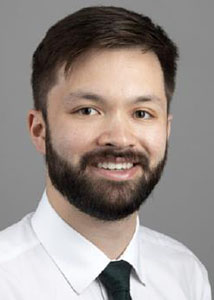
Daniel Forsman, MD
Beth Israel Deaconess Medical Center
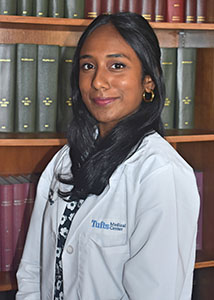
Ivanna Joseph, MBBS
Tufts University
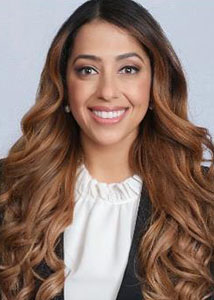
Miriam Quinlan, MD, MPH
Albany Medical College, Alden March Bioethics Institute
NCCU Fellows
2023-2025
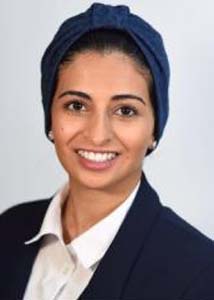
Aljazi Al-Mana, MD
Temple University Hospital
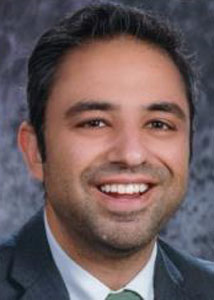
Junaid Ansari, MD
Louisiana State University
Health Shreveport
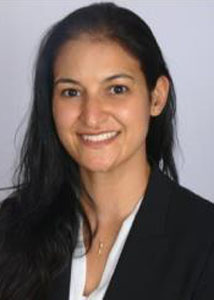
Brenda Auffinger, MD
The University of Chicago
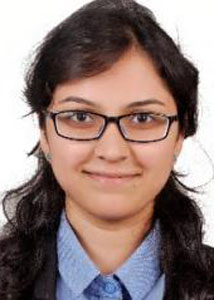
Bhagyashri Bhende, MD
Einstein Medical Center Philadelphia
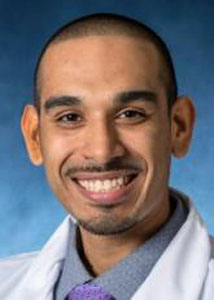
Jonathan Rafael Gomez, MD
Johns Hopkins Hospital